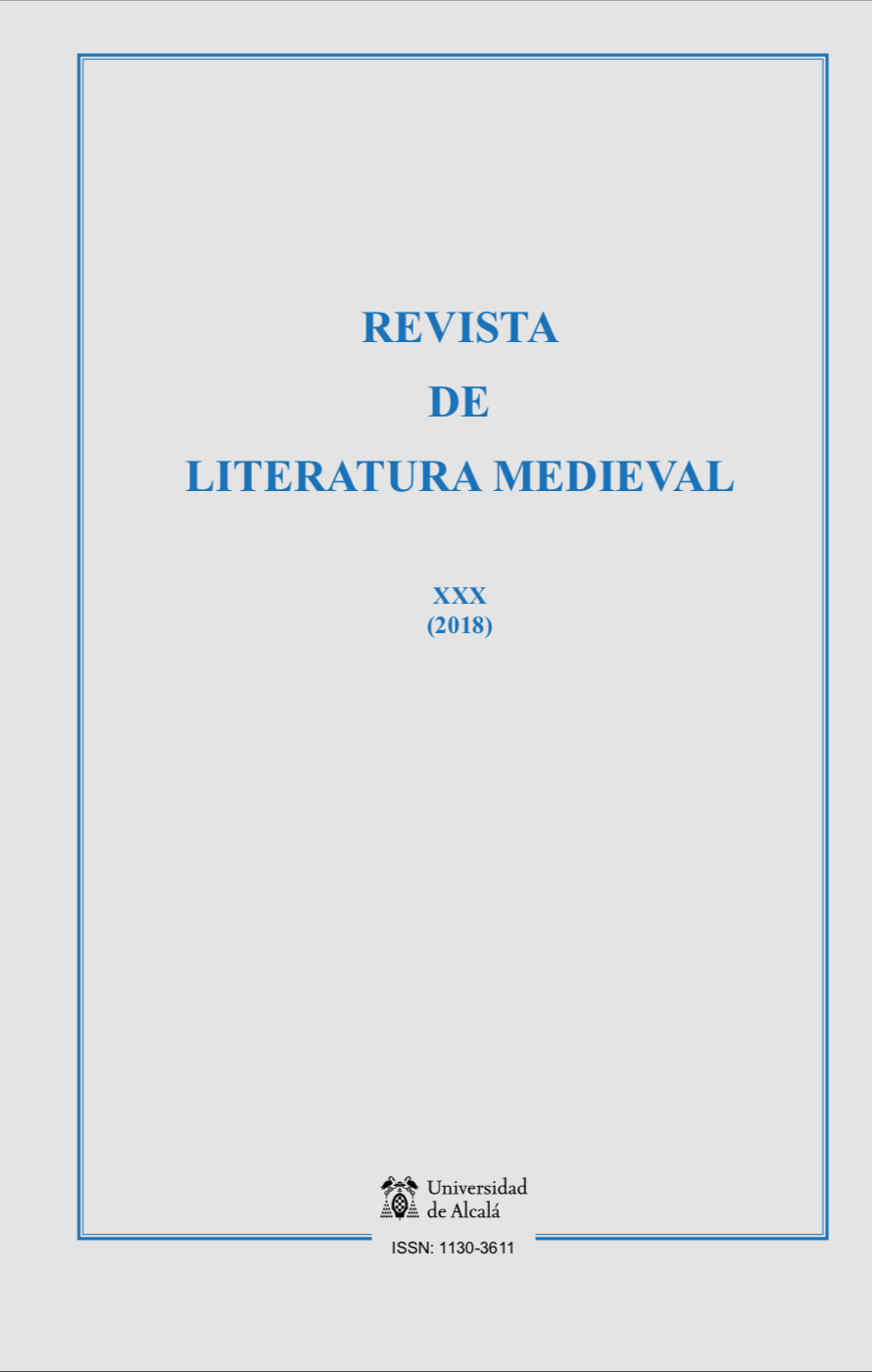(Co)autoría femenina en la poesía de Cancionero
DOI:
https://doi.org/10.37536/RLM.2018.30.0.74048Palabras clave:
Cancionero, Mujeres escritoras, Poesía medieval, Poesía renacentistaResumen
La autoría femenina era una cuestión polémica en la Iberia del siglo XV y principios del XVI. Gran parte de la producción poética de este período estaba asociada con la interacción social, lo que permitía una compleja negociación de la autoría y los papeles de género. Si bien el discurso femenino era fundamental para la escritura poética y las prácticas culturales relacionadas con el mismo, estaban en funcionamiento prácticas editoriales que suprimían las contribuciones de las mujeres a la escritura. El estudio apunta a una imbricación textual del discurso femenino y masculino en varias etapas de la composición poética y propone una reconsideración de las aproximaciones a la autoría femenina (y masculina).
Descargas
Métricas alternativas
Descargas
Publicado
Cómo citar
Número
Sección
Licencia
Las opiniones y hechos consignados en cada artículo son de exclusiva responsabilidad de sus autores. La Universidad de Alcalá no se hace responsable, en ningún caso, de la credibilidad y autenticidad de los trabajos.
Los autores conservan los derechos sobre sus trabajos, aunque ceden de forma no exclusiva los derechos de explotación (reproducción, edición, distribución, comunicación pública y exhibición) a la revista. Los autores son, por lo tanto, libres de hacer acuerdos contractuales adicionales independientes para la distribución no exclusiva de la versión de la obra publicada en la revista (por ejemplo, alojarlo en un repositorio institucional o publicarlo en un libro), siempre que medie un reconocimiento de su publicación inicial en esta revista.
Los trabajos se publican bajo los términos estipulados en la Licencia de Atribución-NoComercial-CompartirIgual 4.0 Internacional Creative Commons (CC BY-NC-SA 4.0) que permite a terceros compartir la obra bajo las siguientes condiciones:
Atribución — Usted debe dar crédito de manera adecuada, brindar un enlace a la licencia, e indicar si se han realizado cambios. Puede hacerlo en cualquier forma razonable, pero no de forma tal que sugiera que usted o su uso tienen el apoyo de la licenciante.
NoComercial — Usted no puede hacer uso del material con propósitos comerciales.
CompartirIgual — Si remezcla, transforma o crea a partir del material, debe distribuir su contribución bajo la misma licencia del original.









